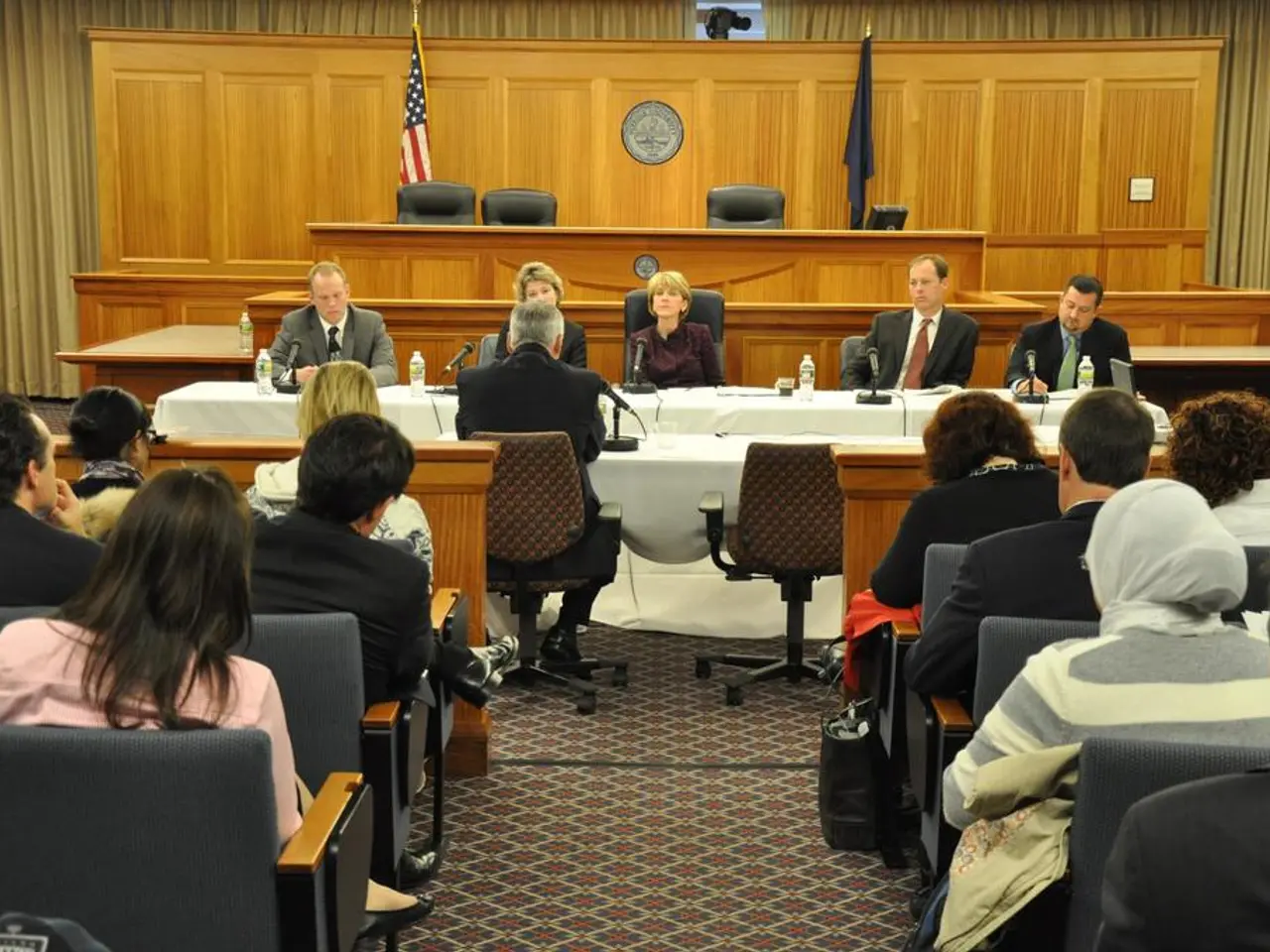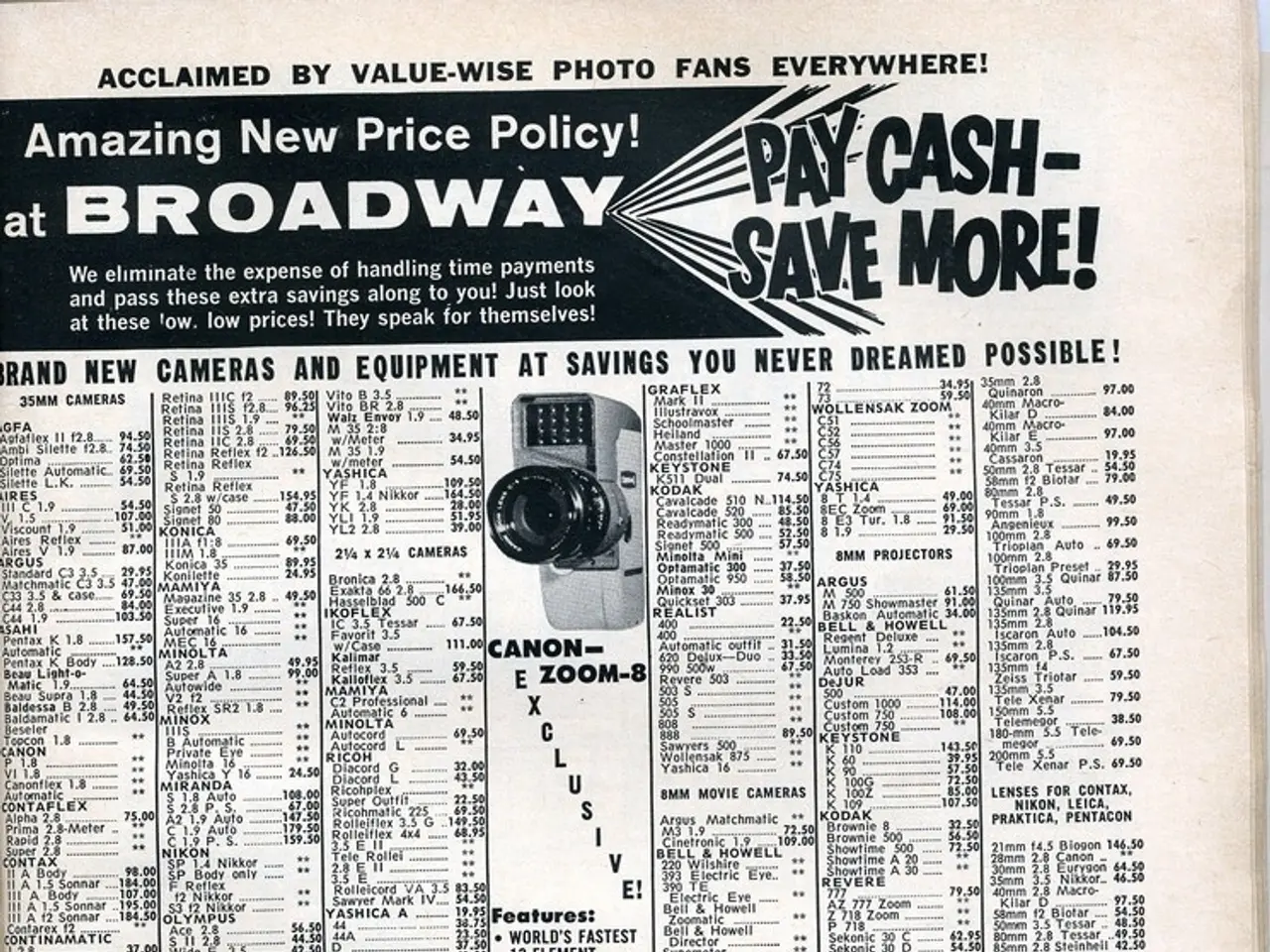Economic Investment: Boon or Burden for Economic Expansion? - Elements, Impacts
What's the skinny? Government spending, also known as expenditures, refers to money that government spends on goods, services, investments, or other items. Examples include operational activities such as defense, education, and healthcare, as well as transfer payments like unemployment benefits or social security.
Under a fiscal deficit, government spending exceeds government revenue, leading to a deficit. On the flip side, a fiscal surplus occurs when government revenue surpasses spending. When spending equals revenue, we're looking at a balanced fiscal.
Government spending plays a significant role in influencing the economy. It contributes to the aggregate demand—the sum of household consumption, business investment, and net exports—which affects overall economic growth. Increased government spending typically boosts aggregate demand and stimulates economic growth, while decreased spending can slow it down.
Why does government spending matter?
- Public services provision: The government is often responsible for providing services that the private sector might find commercially unviable or unwilling to engage in, like defense.
- Affordable public services: Unlike businesses, the government doesn't operate with the goal of making a profit. This allows it to provide affordable public services like hospitals and schools, reaching those who can't afford expensive private alternatives.
- Supporting the economically disadvantaged: Government spending helps sustain the living standards of those who are economically disadvantaged through programs such as unemployment benefits and social security.
- Economic management tool: Government spending can be used as a fiscal tool to influence the economy, with changes in the spending budget impacting short-term economic growth. Increased spending can encourage growth, while reduced spending can help prevent economic overheating.
- Increasing the economy's productive capacity: Capital spending on infrastructure leads to an increase in the capital stock, which in turn increases the economy's potential output.
Components of government expenditures
Government spending can be divided into several categories, such as government consumption, transfer payments, and interest payments. A more detailed classification divides it into current expenditure, capital expenditure, and transfer payments.
- Current expenditure involves routine activities and Salaries, wages, and public services expenses.
- Capital expenditure includes infrastructure spending like roads, bridges, and airports, which creates future benefits by increasing the economy's productive capacity.
- Transfer payments are monetary payments to the private sector that don't involve the exchange of goods and services, like unemployment benefits and scholarships. These are excluded from GDP calculation due to not representing expenditures for production.
Government spending's impact on the economy
Investments in infrastructure create a multiplier effect by stimulating business activity and increasing the economy's productive capacity in the long run. Government spending can also have a significant effect on indicators like economic growth, inflation, and the unemployment rate.
Government spending plays a vital role in increasing the economy's productive capacity by investing in infrastructure. By changing its spending budget, the government impacts short-term economic growth, inflation, and employment. For example, increased spending during a recession can boost economic growth and reduce unemployment. Conversely, reducing spending during economic overheating helps prevent hyperinflation.
Some expenditures provide monetary income for households, such as unemployment benefits and other social security benefits, helping reduce poverty.
Government spending as a fiscal policy tool
Government spending, along with taxes, is a fiscal policy tool used by the government to influence economic activity. Government spending acts as an economic stimulus during recessions, while reductions in spending can help prevent economic overheating.
Expansionary fiscal policy
Increased government spending during a recession stimulates growth by increasing demand for goods and services, encouraging businesses to increase production and absorb more labor. This leads to higher economic growth and falling unemployment rates.
Contractionary fiscal policy
Contractionary fiscal policy is adopted during economic overheating periods when inflationary pressures are high. Reduced government spending reduces aggregate demand, helping curb inflationary pressures and prevent hyperinflation.
Automatic stabilizer
Some aspects of government spending operate automatically and counter-cyclically, balancing the economy during different economic cycles. For example, unemployment benefits decrease during economic expansions and increase during recessions.
Crowding out effect
The "crowding out effect" refers to the situation when rising government deficits reduce private investment. The government borrows to cover deficits, leading to higher interest rates that make borrowing more expensive for businesses, potentially discouraging investment and economic activity.
Fiscal deficits and national debt
Long-term fiscal deficits result in increased national debt, which can lead to economic instability through mechanisms such as higher interest rates, crowding out private investment, and loss of confidence. However, responsible debt management can be beneficial for investment in areas like infrastructure, education, and other long-term growth drivers.
Learn More
- Government Current Expenditure: Examples and Impact on GDP
- Government Capital Expenditures: Boosting Long-term Economic Growth - Examples, Impacts
- Government Discretionary Spending Explained (Examples & Impact)
- In the realm of business and finance, government spending plays a critical role in influencing the economy, particularly by contributing to the aggregate demand and stimulating growth.
- When considering its social responsibilities, government expenditure is crucial in providing services that the private sector might deem unviable, such as defense, and in providing affordable public services like hospitals and schools for those who cannot afford expensive private alternatives.







